Small articles on big issues 1
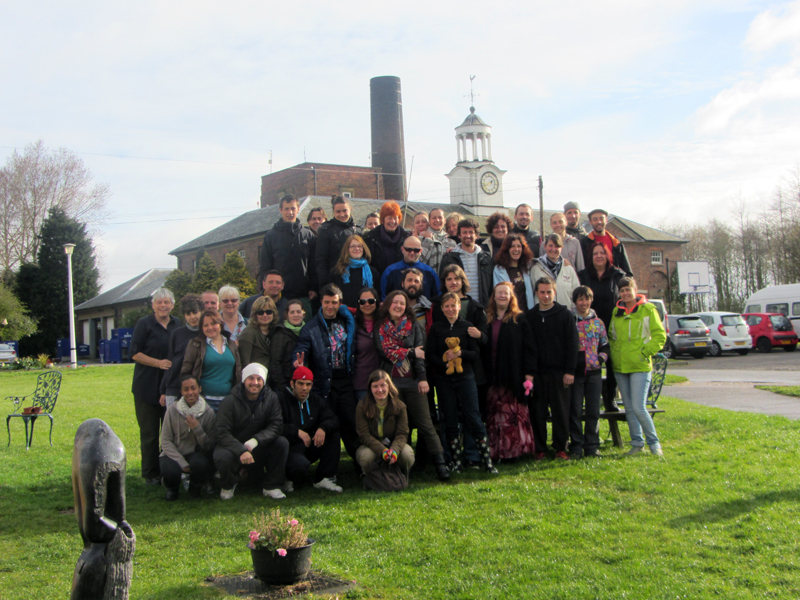 On teaching and learning
On teaching and learning
The school’s learning and teaching is a rare bird and definite¬ly out of the ordinary. It has each student and the student body in the middle of everything and playing the leading part.
This is deepened through a collectively based organisation of the school’s programme. The content and methods used within teach¬ing and learning demand that all, students and teachers alike, act together both theoretically and practically within the programme topics and their elements of life and learning, as well as within all matters of running the school and its everyday.
A sprightly programme and personnel
The school’s teaching and learning processes are charac¬terised by being fitted into a rich, consuming and consummate programme that is sprayed with highlights, efforts and results.
The headmaster and the teachers of the school represent no ten¬dencies to be average, boring or act as teachers frequently do in schools around the world, lecturing, writing on the blackboard and asking the students to repeat what they learned from a book or from writing down in their notebooks, or other dusty ways of acting traditionally within teaching and learning. Quite on the contrary, the school’s personnel takes on many efforts to create and involve the students in engaged and relevant learning processes.
All fully engaged
Thus, and contrary to tradition within schools worldwide, the teachers of this school are fully engaged in all the school’s matters and activities and work in close cooperation with the stu¬dents.
In sum and essence, this means that the school is operated and shaped by all the people acting within a collectively functioning unity, be they headmaster, teacher or participant.
An atmosphere with a vengeance
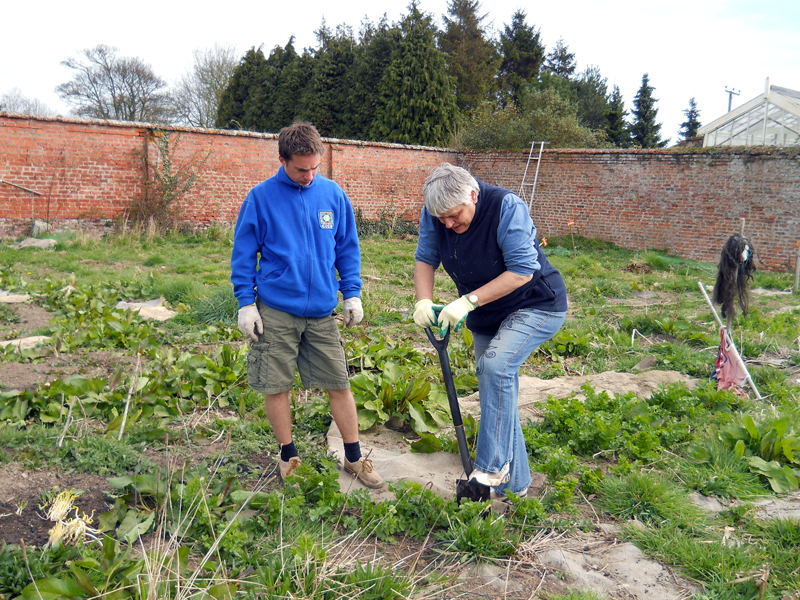 |
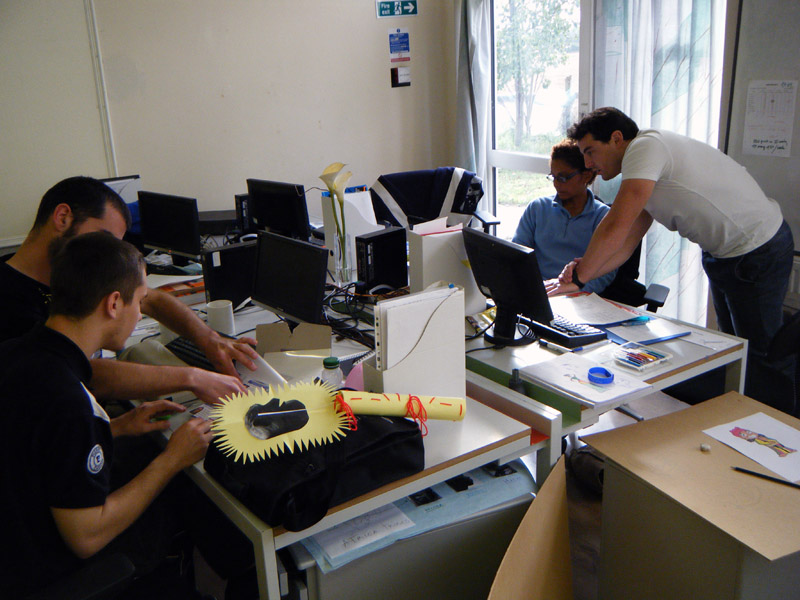 |
All this makes for an alert and rich inter-human atmosphere at the school, where teaching and learning takes place and is forti¬fied and inspired through group meetings and common meetings, where all aspects of life at the school are treated and new learning topics are debated and crafted.
Thus, the process of following the programme and benefiting from it is frequently treated in the working groups and among all at the school, so the quality of the learning is constantly on the move forward.
Pedagogical principles profiling the school
Within the programme, some necessary demands of relevant content and lucid methods are included and must be satisfied in order to fulfil the expectations of the programme. Also, the pro¬gramme has a certain physical framework that is a part of making it possible.
In this connection, we shall clarify in brief the pedagogical prin¬ciples that lie at the heart of the school and run through its every¬day of learning and teaching, making it all worthwhile for students and teachers alike.
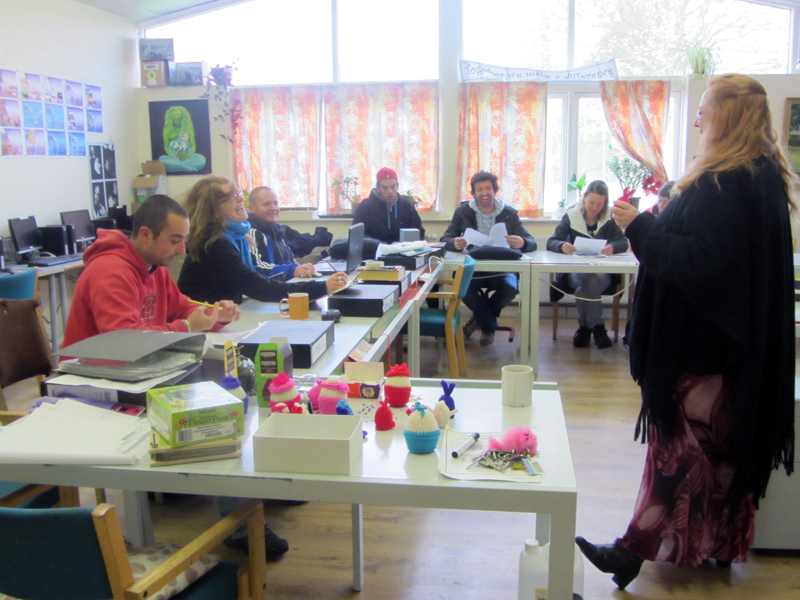 1. Both theoretical and practical studies
1. Both theoretical and practical studies
The school’s learning processes comprise both theoretical and practical studies, as the school sees this as an absolute necessity for the process of learning and as a first precondi¬tion for benefiting from the school’s programme.
2. A high degree of reality
The higher the degree of reality of the programme, the more is learned, meaning that old and ordinary stuff might be thrown away and substituted with new ways of learning on the spot from meeting people and environments.
3. Coherence and overview
The more coherence is present in the school’s teaching, learn¬ing and everyday, the more overview and understanding is generated within the individual, the student body and in the results of the learning.
4. The programme generates motivation
Motivation is a structural part of the school’s everyday that lets you take in new stuff, try out and experiment with energy and a light head, processing attitudes and sharing exciting titbits of all kinds with your teammates.
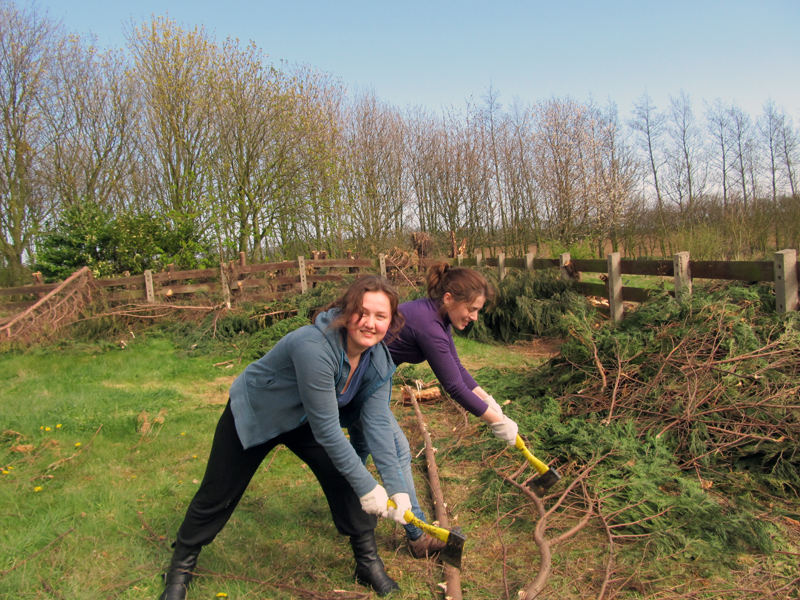 5. Immersion and work
5. Immersion and work
Immersion in your programme activities will make you de¬mand more immersion and deeper learning, and working to make it all happen demands ever more work with the effect of getting deeper into the stuff and the processes.
6. Self-determination
The background of self-determination is the experience of a group of people who want to solve a task together, and its result is democratic sympathy and creation of own ideas for the good of personal equanimity and the function of the group.
7. The collective is the partner of aloneness
Collectiveness is a core element of the school. In our edition, collectiveness is not a mod¬ern, smart form of behaviour that will quickly go away. We seek it not because we might as well do so, but because we cannot do without it.
8. Liberation through coherence of conception and action
In the school’s structure and programme, you find a thousand possibilities of practicing the direct path from imagination to action through dialectical processes where imagination is a main precondition for new action.
9. Mobility is a precondition for learning much
In all schools, students of any age must move beyond the premises of the school, meeting real life and people, getting engaged through moving and interacting with the phenomena and reality of environment and people.
10. Practice and theory, experience and awareness
Knowledge is a precondition for experience. This demands that the teacher is integrated in the teaching and learning processes. Learning of a subject matter cannot be separated from the conditions in which it takes place.
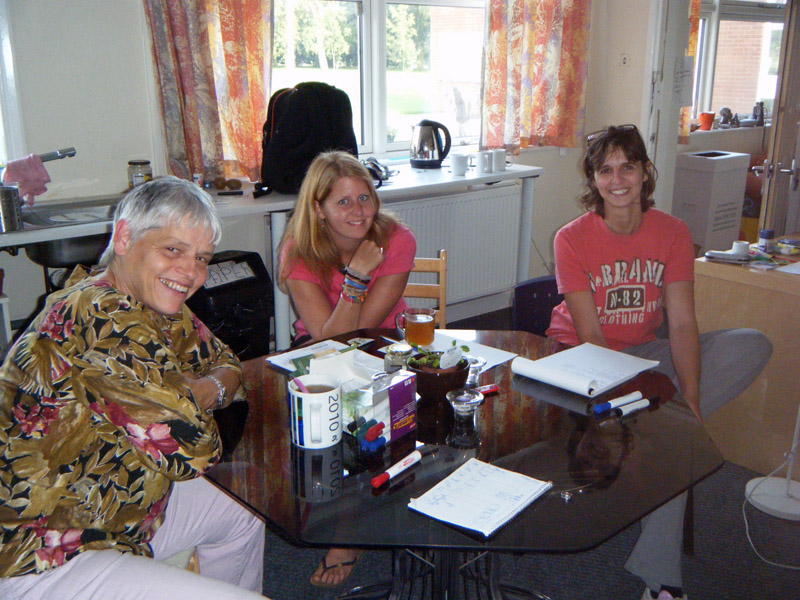 Common meetings
Common meetings
It is the Common Meeting that governs the school. Com¬mon meetings are used for discussing and working out the detailed contents of the programme elements and the particular methods with which to get the most out of the topics and actions. This secures that the programme is continually realised and brought further within and among the students, and also serves to assist and bring along those of the students or groups who need good advice or comments to their work.
The school’s common meeting unites everyone, with the headmaster in the lead and with all teachers and students participating. The meeting treats many issues of the school and is part of planning the process, courses and results of the learning and teaching, as well as the daily life of the school and the immediate future to look forward to.
Meeting points also comprise the different lines of necessary and instructive practical work to be done, so everything functions to standard. Such tasks must be performed to a high level of quality, so the vivid training at school is supplemented by attaining a thorough level of quality in the everyday life while moving through the programme.
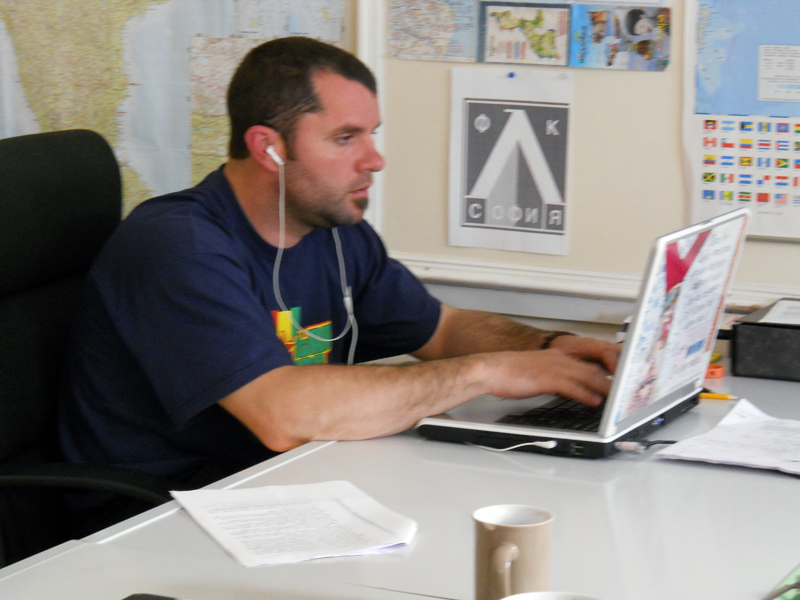 A new way of learning called DmM
A new way of learning called DmM
Here, we shall acquaint you with a modern way of learning, called DmM from its original Danish abbreviation, which shall also be its name for this purpose.
The DmM system was created in 1995 by a larger conglomerate of teachers who had been working together for a long time, and who still uphold this cooperation.
The DmM system radically changes the distribution and type of work that is allocated to the teacher and to the student respec¬tively and, what is more, it changes and improves the student’s ability and potential to learn and work, both independently and collectively.
In the old and tedious school that we all know, the teacher has the knowledge and the patent, the initiative so to say, of the learning processes, and the teacher is the one who knows and directs all matters that are studied in school, according to the curriculum of the specific train¬ing institution.
With DmM, this is history!
DmM is a digitally based system that builds on each student hav¬ing access to a computer that is connected to the school’s digital library, where all the varied and rich contents of the three learn¬ing categories of Studies, Courses and Experiences are located. Thus, the digital library holds the content of all the varied subject matters that the students will study and is always available to all.
The DmM categories of learning are in short: Study Tasks, Courses and Experiences.
* Study Tasks are furnished with a short title that in few words nails down what the piece of learning is about.
The study tasks take up half of the school time and are chosen and solved by each student through own choice, with all tasks being forwarded to the teacher, who will certify, add to and in general comment the finished tasks.
* Courses make up a quarter of the school time. Here, the teach¬er is the host and performer and is obliged to deliver extraordi¬nary, interesting and solid teaching that engages and enlivens the students through many methods.
* Experiences make up the last quarter of the time, in which the students either dive into already suggested experiences that are available from the database or invent their own experiences, which are elaborated in writing and treated or commented by the teacher. The experiences let the students into an abundance of impressions, feelings, experiments and new knowledge, with stu-dents designing and concluding in writing or in other ways.
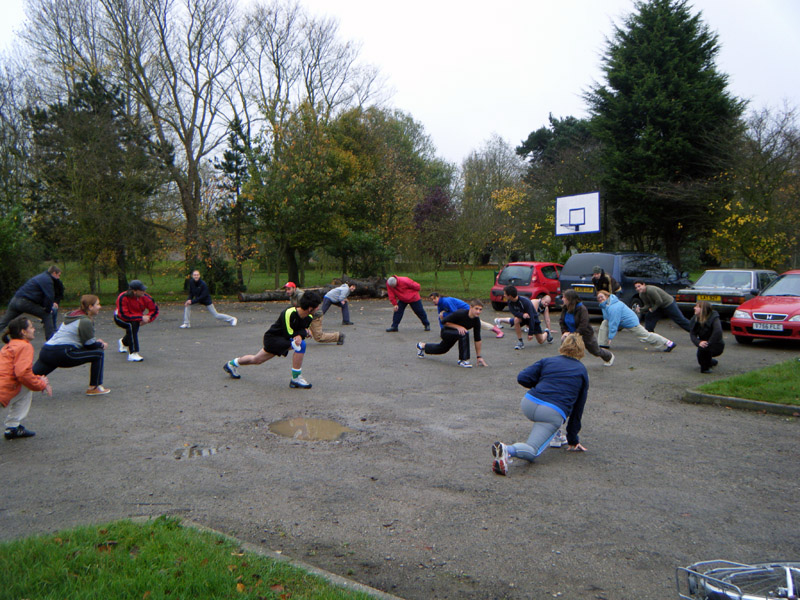 Our kind of teacher
Our kind of teacher
The teachers of the school will teach you throughout. They are, apart from supporting and elaborating the subject matter that the students will work with and pick up during their time at school, also closely connected to and spearheading the school’s programme and teach¬ing efforts.
As a teacher, you must act as a main and stabilising light for the students, a human figure who beams out confidence and demands within all spheres of the school’s activities: The teach¬ing of the subjects, the welfare and progress of each student, the plans for the instruction at all levels, and the overall and detailed plans for the whole time period at school, so it can be overviewed and crafted in many and vivid details within each of the periods at all the school’s courses.
And mark thee; never launch the same plan from one school year to the next! Each new year merits a specific and novel plan, which may still build on some of the former elements, but must be arranged and glide over the scene in new ways and settings around the programme elements, thus adding not only to the efforts and results of the students but also to the inspiration of the teachers, who must renew the instruction and are thus also challenged and inspired in own right.
The plans must be so good and hold so much quality and attraction that all at the school, stu¬dents, teachers, as well as the headmaster, will come to look forward to what is ahead.
Of a varied ilk
The teachers of the school are of a varied ilk. All are trained and skilled in personally practicing a “full to the brim” collectively based school life that encompasses everyone and spreads a well-intentioned, welcoming and productive school life and, not least, a forthcoming atmosphere within all the activities of learning, working and playing.
The teacher council as a collective
The school’s teachers constitute a Teacher Council that collectively cares for all the school’s affairs, and which is responsible for the core value of the training. The school’s teachers are a united group, and are personally skilled in leading and practicing a lively and collectively based school life, spreading a welcoming and energetic atmosphere around the elements of learning and teaching and the many other spheres of the school and its every¬day.
In a world with new multitudes of people, with increasing levels of complexity and new calamities by the day, the teachers have to constantly train themselves in new stuff, sticking together and working in unison to organise and improve the quality and achievements of the school’s content and methods and the students’ benefit from the training.
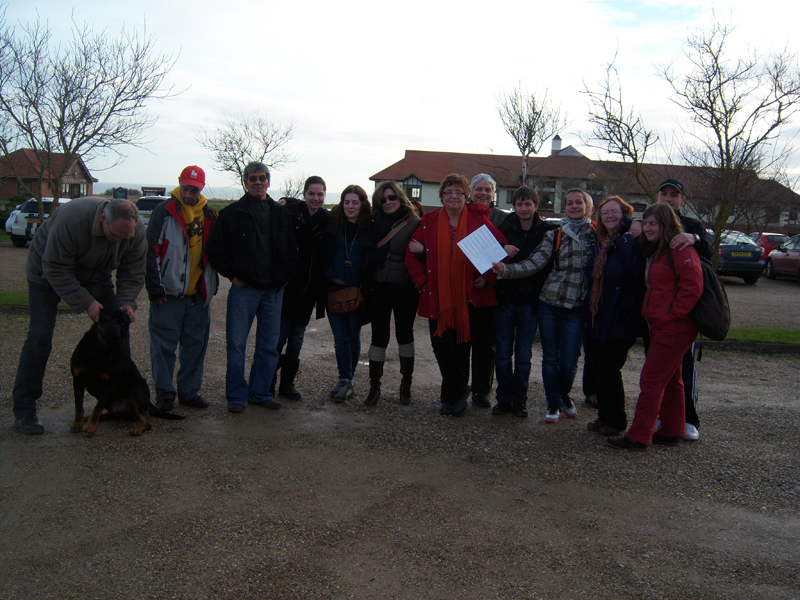 The students also form a collective
The students also form a collective
Also you, who opt to become student at the school, will be¬long and work in groups with your fellow students and teachers within the programme and in the everyday. This means that you will get to know each other well and get ever closer to each oth¬er while sharing and assisting each other in the learning, the life processes and the practical tasks that unfold at the school.
Events for people around the school
The Teacher Council represents liveliness in the everyday and within the ways and means of the training, also beyond the school proper. As an example, people living around the school are often invited to participate in courses, debates, or other gatherings, not only to learn, but also to teach, for example as examiners at People’s Exams.
The Teacher Council will also take upon itself to, together with the students, arrange cheerful events for neighbours and other, who thus get to know more about the school’s programs, daily life and ethics. They will also lead and take part in actions and community work, securing that the undertakings make a difference for the life of the people in the area.
Taking charge of your own instruction
You who enrol as students at the school are the most impor¬tant human force to secure the progress of the programme with its theoretical and practical undertakings, and to make sure, to¬gether with your team, that you get as much as you can from the content and benefit fully from living and working within a larger group of people, enjoying shared tasks and experiences.
You, the students, are supposed to take charge of your own instruction, and you will come to regard this as a foundational value that might well take on existential significance.
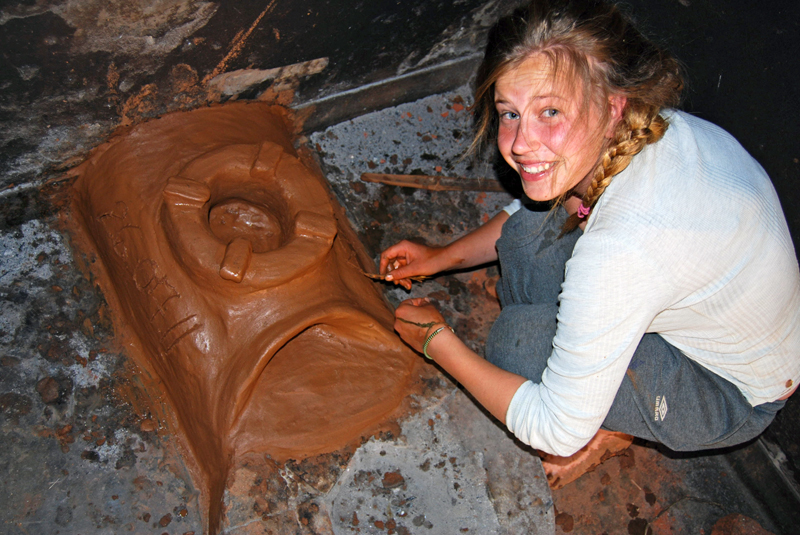 Learning from many aspects
Learning from many aspects
At this school, you will find that learning is not first and foremost about listening to the teacher, although you, as a student, will in many instances be listening intensely to the teacher.
The school’s programme consists of a range of intense and spir¬ited activities that constitute the sum of learning and life processes carried through by a group of people who for a considerable pe¬riod of time share a programme with each other that demands co¬operation and efforts, and which at the same time is sprinkled with elements that are inspiring and also quite out of the ordinary.
Thus, learning will also take place through communication, delib¬erations, through working out your plan for learning and sticking to it, and putting to use what you learned, the methods you used, the ideas you got from it and the results you harvested from the training.
Qualifying the core production together
A school is not a mechanical operation, but a place for people to grow more knowledgeable, skilled and serious, understand the world and its beings and get an inkling of its future, learning to do much and going for more than anticipated, with both brains, minds and hands. Teachers are primed and trained with help from their teaching colleagues and the headmaster, and most importantly, when it comes down to it, will come to learn most of what they need through own practice and efforts.
From this vantage point, the teacher is his or her own part of founding the skills of the students and their ability to act with sense and seriousness in what lies ahead.
The Teacher Council must act together and passionately like a brain trust, and must perceive itself as the school’s trouble-shooter. It is of strategic importance for the school to build and renew itself continuously in the everyday, and permanently protect and develop its work and operation with determination and with ever new creations and ideas, acting in new ways when handling the general welfare of the students, the everyday, the teaching and learning, the school’s many activities, and the ways to serve the values of the future.
 24 hours, 7 days a week
24 hours, 7 days a week
Importantly, the school is a boarding school. This lets the school entail and promote a rich panoply of many aspects of learning and working together, theoretical as well as practical, thus in sum constituting a broad and exacting experience for you to carry on and take with you during your next challenges in life.
Apart from the daily day training and learning activities within the school’s programme, many other, colourful and diverse activities will take place while you are in residence at the school.
Frankly speaking, you are in for a learning experience with a high yield, reading and understanding books, preparing for what the next period will bring, discussing and debating the big issues of our time and world and the future of humanity, going on travels and investigations, alternating between working in your own company and in your groups, and working with the practical and encouraging endeav¬ours of running all the school’s daily affairs and its shared board¬ing life and facilities: tending the garden farm, renovating the kitchen, crafting the menus for the next month, enjoying nature, discussing own future, doing sports together and many more in¬tensely interesting topics and matters to treat and get hold of. You will no doubt benefit from these and many more aspects of the school’s environment and activities. The panoply of ac¬cessories to the school’s solid training and life will add to and further enhance your interest, results and the human quality built up through the programme and the shared life.
A school that does more
This school does much more than what traditionally takes place in most schools frequented by children, teenagers and adults around the world.
One reason for this is that the vast majority of schools worldwide are day schools, with the students frequenting school during a limited chunk of the day, while passing the main part of the day within a family environment or other pastime that seldom makes for an inspiring atmosphere of learning.
Untraditional programme elements
As you can read in this book, the school’s programmes are untraditional and at times even amazing. What is more, they are also demanding and taxing and let you do much work. From this, it follows that you who enrol in the school’s teams may become interested in joining the school’s work, because its programmes and ways are beyond what is most often on offer and how schooling frequently unfolds for many people.
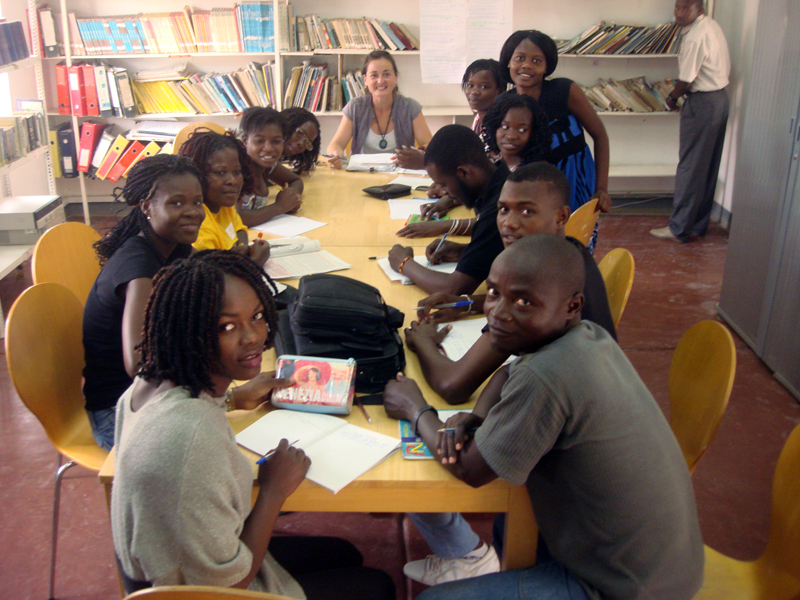 Looking for something extraordinary
Looking for something extraordinary
The students, teachers and others involved in and around the school are, on purpose and by design, living together under conditions that allow for many angles and aspects of sharing, enjoying and challenging life together within its multiple, and even existential, shades.
The boarding life is shared within a main and variable context and programme, to which those who enrol are attracted, and within which they have decided to do their part when enrolling at the school, thus bringing together a solid, engaged and differentiated group of people from all walks of life.
Seeking broadness and getting much out of life
To join the school and get much out of it, the students must deliberately want to be part of carrying out the programme con¬tent and sharing the everyday with the others with all what it takes: Taking on unknown and unfathomed challenges, doing what you never imagined in life and school, learning with zest and high ef¬ficiency, doing good for yourself and your teammates, going for gold as to life, comradeship and human qualities, entering deeply into how mankind stands with the global conditions and the future of the 21st century, in¬structing and teaching in far-away lands, practicing humanity on a broad level and representing an eagerness to find reliable human company, maybe even picking up qualities and friends for future activities and thus improving the prospects of life considerably.
The students are the main actors
At this school, learning is arranged to be captained by the students themselves and not first and foremost by the teachers, although they, of course, also do their magic of teaching within the programme.
But the teaching and the everyday matters of life at the school are first and foremost decided and run by the student body, with the support and rich experiences of the headmaster, teachers, guest instructors and other employees.
Many ways of living and learning
Below, we shall in very short terms point to and shine a light on a great many activities that, according to the specific peo¬ple and teams at the school, form part of the school’s concrete life and learning. They are accessible for students one by one and all together and are crafted so as to add colour and zest to the eve¬ryday of it all. In other words, you have enrolled to fulfil a specific programme, but within the programme, there is time available to fill up with values invented in the process.




